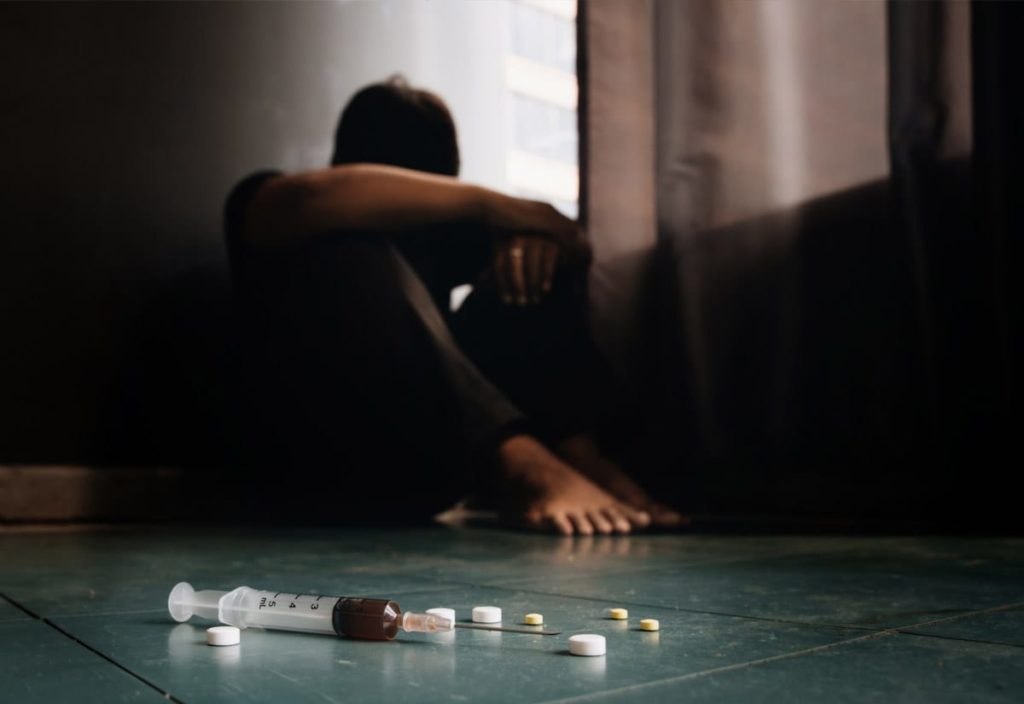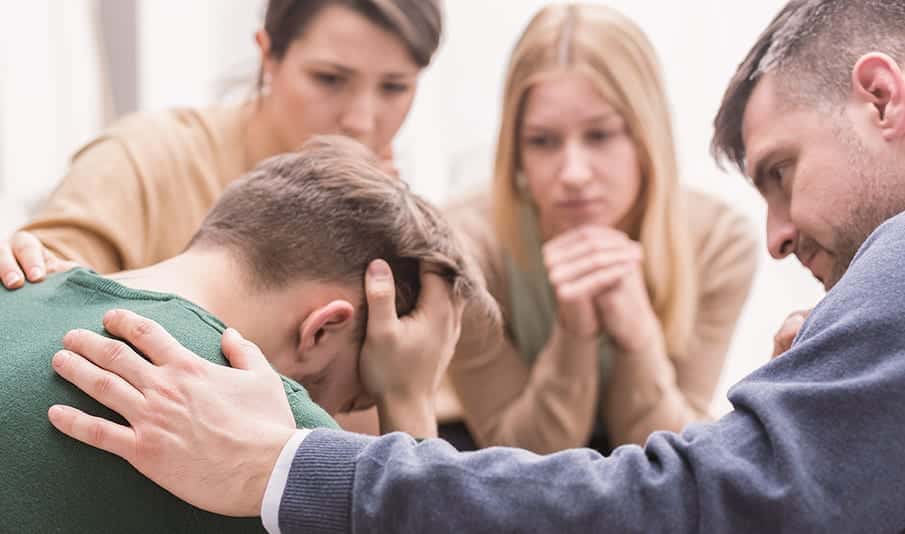Many recovering addicts are on the brink of relapse, while others are actively using again. If you’ve relapsed on drugs, you aren’t alone.
“Two great epidemics of our generation are intersecting in ways that are additively deadly.”
Those are the words of a Massachusetts doctor named Peter Grinspoon in an article by Harvard Health regarding the collision between the opioid crisis and the COVID-19 pandemic. He’s recently witnessed the consequences of these two coexisting disasters in his hospital – and they’re deadly.
He continues, stating that “people suffering from addiction are vastly more vulnerable to [the] coronavirus, as they are more likely to be homeless, poor, smokers with lung or cardiovascular disease, under- or uninsured, or have experienced serious health and socioeconomic issues from drug addiction.”
In the sober community, isolation is also a popular topic (especially in regards to relapse). A majority of addicts and alcoholics recover through a strong community and a structured routine, something recently stripped from many people due to COVID-19. Unfortunately, addicts sink deeper into addiction when they’re socially isolated.

If you or a loved one has relapsed on drugs during the COVID-19 pandemic, it’s crucial to seek help right away. Follow these tips if you or a loved one recently began using drugs again and to prevent any dangerous consequences.
Get Help (And Get It Early)
It’s not always easy to prevent a relapse, so early intervention is one key to lessening the impact of returning to drug use. Whether you seek out an online meeting or pursue medical advice from an addiction professional, halting a relapse in its earliest days can help prevent any impending catastrophes.
Support groups can provide an outlet for people who relapse, too. Staying sober isn’t easy, and others in recovery understand this. Finding an online alcoholics anonymous meeting, or another 12-step meeting, could help you recover from a recent slip in drug use.
Reach Out To A Drug Treatment Center
Whether you decide to seek an inpatient treatment program for a substance use disorder or not, speaking to addiction professionals will give you the direction necessary to get better.
Treatment and recovery go hand-in-hand. Reputable treatment centers, like Hotel California by the Sea, have the expertise necessary to help addicts and alcoholics recover for good.
Although drug abuse treatment isn’t necessary for someone to recover from a substance use disorder, people who attend treatment often claim it was a necessary experience in their earliest days of sobriety.

Sure, treatment poses its own risk factors during the novel coronavirus outbreak. But most experts agree it’s worth it during this pandemic. Substance abuse is a serious issue that requires long term treatment. And as we mentioned above, it can also make addicts more susceptible to contracting COVID-19.
If you do decide to seek out an addiction recovery center for treatment, Hotel California by the Sea’s admissions staff can help point you in the right direction.
How Inpatient Drug Treatment Can Help
Recovery centers like Hotel California by the Sea help people who are new to addiction recovery, as well as people who relapse on their drug of choice. By performing a thorough assessment of someone’s physical and psychological state, HCBTS’ addiction experts and trained medical doctors can decide the best course of action for someone who has relapsed on drugs.
Depending on the individual client, this course of action could be a gender-specific or age-segregated treatment track. Sometimes, trauma treatment will be necessary to help a person recover. Other times, it might be more helpful for someone to be treated for a co-occurring disorder while receiving drug abuse treatment.
Inpatient drug abuse treatment can also help clients safely detox and receive the ongoing support they need to maintain their sobriety. The structure provided by an inpatient addiction treatment center is vital for addicts in early recovery.
Reach Out To Family And Friends
Many people in recovery from drug or alcohol abuse, or other mental health disorders, feel isolated by the novel coronavirus outbreak and strict social distancing policies. Whether you decide to enter treatment after a relapse or seek recovery in an outpatient setting, building a strong support network of loved ones is essential for staying connected.

Reaching out by telephone or video call helps many people in recovery combat their loneliness. A strong support network of family members and friends gives recovering addicts a safe place to vent their frustrations, celebrate their successes, and confide in others about big life decisions.
What Counts As A Relapse On Drugs?
Most people in the sober community consider a relapse to be a significant return to drug use or alcohol. Sometimes a relapse can last days, while other times, one can last years. Either way, getting help for substance abuse issues can save your health and prevent permanent damage in your personal and professional life.
Rethink Shame
Addiction is a severe disease to overcome. Many addicts feel a multitude of feelings while actively using drugs. However, the most inhibiting of these emotions are shame, guilt, and fear.
Shame especially prevents addicts from reaching out and seeking the help they need and deserve at a drug and alcohol rehab center. If you recently relapsed, remember that, no matter how low you feel, you deserve treatment for your addiction to drugs.
Relapse is not a sign of failure. If you or a loved one relapsed during the novel coronavirus outbreak, don’t wait to get help. Reach out to Hotel California by the Sea today, or use our online form to verify your insurance. An admissions expert will reach out to you promptly with more information about addiction, recovery, and your specific treatment options.
